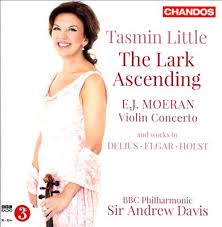Congress Theatre, Eastbourne, 9 March 2014
The LPO have a superb track record for finding new talent, and conductor Ilyich Rivas, from Venezuela, is yet another feather in their cap. He conducted the opening Dvorak and the Shostakovich symphony without a score, yet with the panache and dexterity of a long established master. His control was impeccable and balance always apt.
He opened with Dvorak’s Scherzo capriccioso, where flair balanced steely control of rhythms, yet allowed the line to breathe. Mahler’s Blumine, originally planned for his first symphony, now stands alone but its gentle nuances and bitter-sweet qualities were caught with great sensitivity.
Shostakovich’s first symphony opened with fine solo wind playing and a real sense of bite. The Allegro provided unexpected tension, and fleetness in the outer sections. The orchestra has some superb solo players, and the oboe opening to the third movement, together with a number of cello solos were all outstanding. The long meandering transition towards the final movement was securely structured and the narrative always precise. An incisive and convincing reading from all concerned.
The first half had ended with Tchaikovsky’s piano concerto. Given the rest of the programme this seemed an odd choice and provided something of a war horse in the midst of thoroughbreds. Simon Trpceski’s approach as soloist was forthright and somewhat brash, often over-loud and, though technically accomplished, lacking in some sensitivity to musical line. The second movement was by far the most successful as it allowed the score to breathe more easily.



